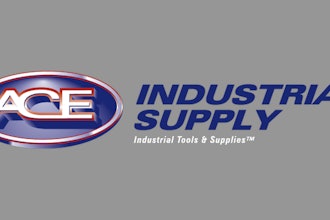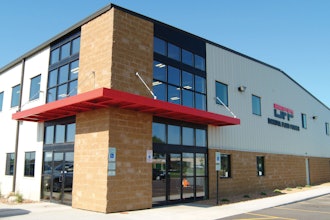It takes the right kind of company to make it work, but the implementation of incentive based pay can result in increased productivity and lowered business costs.
Oe thing’s for sure, incentive-based pay isn’t for everyone.
But if a company has an environment conducive to such an implementation, the right technology to track employee performance, and the ability to pay its workers based on their production, the implementation of incentive-based pay can result in increased productivity and lowered business costs. This is precisely what happened for Warren MI-based food distributor Lipari Foods.
“The more nimble you are, and if your culture lends itself to people being rewarded for their individual performance, it’s a great fit,” says Brian Zilo, Lipari Foods’ Director of Human Resources.
The effort to switch from hourly pay to incentive-based pay has been both challenging and time-consuming for Lipari Foods. Back in 2002, the company came out of a union election with a goal of rewarding warehouse associates that were performing at a high level with more pay. Due to the way the food distributor’s operations and pay were structured, there was virtually no incentive for a warehouse employee to be more productive than his or her co-worker.
“If you were a high-performer, you would essentially be making less money per hour because you would be working harder than the guy not working as hard right next to you,” says Zilo. “So we were compelled to make a reward system work.”
After introducing the idea to the company’s warehouse employees following a victory in the union election, and receiving a fair amount of supportive feedback, Lipari Foods was faced with the difficult task of analyzing the company’s operations and establishing an incentive program that made both the company and its workers more money.
After careful consideration, the company decided it was beneficial to pay each worker an hourly rate or incentive-based rate, whichever of the two was the highest. Lipari Foods tracked workers’ hours and productivity over a substantial period time and found nine out of 10 employees asked to be switched from hourly to incentive-based pay.
As expected, the employees began to increase productivity and Lipari Foods was able to track worker performance over time. Eight years later, the company has seen a 76-percent increase in worker productivity.
Quality Control
However, Lipari Foods also noticed some unintended consequences that resulted from the switch to incentive-based pay. Chief among those was a drastic decrease in quality of performance by warehouse workers. While employees were picking orders at a faster rate, accuracy and customer service were adversely affected.
“Guys were now focused primarily on making money, while quality and customer service were kind of secondary at that point,” says Zilo. “So we had to build in some controls.”
The company’s managers adjusted their requirements and expectations of employee performance. Instead of simply managing hours and trying to foster better productivity, they focused more on safety and efficiency.
Lipari Foods also made investments in inventory control, warehouse layout, and technology equipment, as well as the installation of a voice pick system and double-pallet jacks. These allowed the company to deal with the rising productivity and combat those negative side effects.
Transport Application
Following the successful introduction and implementation of incentive-based pay in the warehouse, Lipari Foods made the decision to try it on the transportation side of its operations in 2009.
“That was a different ball game,” says Zilo. “We went into this knowing that with the long-haul guys that make a run from one location and come back, there’s not the ability to increase their income like there is on the route side.”
Lipari Foods is still tweaking its incentive-based pay model, especially on the transportation side. And Zilo cautions those enterprises that are seriously considering similar implementations that they will take a lot of time, effort, and analysis.
“We focused on the individual, and for our business it was the right move. But some businesses maybe better off focusing on the group and setting some group targets,” he continues.
“It’s been an evolutionary process,” Zilo adds.






















